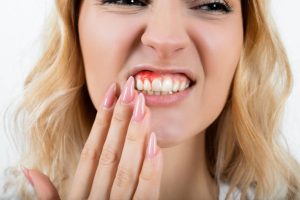
girl wants to go to the toilet, urinary incontinence
Bacterial Vaginosis (BV)
Bacterial Vaginosis is a common vaginal infection caused by an imbalance in the vaginal flora. Normally, the vagina contains good bacteria (mainly Lactobacilli) that maintain a healthy pH balance. In BV, harmful bacteria overgrow, disrupting this balance.
Causes
The exact cause of BV isn’t fully understood, but it’s linked to factors that disrupt the normal vaginal environment, such as:
- Sexual activity (new or multiple partners)
- Douching
- Use of an intrauterine device (IUD)
- Antibiotics that reduce the number of healthy bacteria
- Changes in hormones (pregnancy, menstruation)
Risk Factors
- Having multiple or new sexual partners
- Douching (which can upset the balance of vaginal flora)
- Smoking
- Lack of Lactobacillus bacteria in the vagina
- Use of perfumed soaps, sprays, or bubble baths
Symptoms
- Thin, grayish-white vaginal discharge
- Fishy vaginal odor, especially after intercourse
- Vaginal itching or irritation
- Burning during urination
- Some women may have no symptoms at all
Diagnosis
- Pelvic Exam: The doctor examines the vagina for signs of BV.
- pH Test: The vaginal pH is higher than normal (>4.5).
- Whiff Test: A sample of vaginal discharge is mixed with potassium hydroxide (KOH), which may produce a fishy odor.
- Microscopy: The doctor looks for “clue cells” (vaginal epithelial cells covered in bacteria) under the microscope.
Treatment
- Antibiotics:
- Metronidazole (oral or vaginal gel)
- Clindamycin (oral or vaginal cream)
- Tinidazole (oral) It’s important to complete the full course of antibiotics even if symptoms improve.
- Probiotics: Sometimes recommended to restore healthy vaginal flora, although more research is needed to confirm their effectiveness.
Complications
- Increased Risk of STIs: BV increases susceptibility to sexually transmitted infections (STIs) like HIV, chlamydia, and gonorrhea.
- Pregnancy Complications: BV is linked to preterm birth, low birth weight, and premature rupture of membranes.
- Pelvic Inflammatory Disease (PID): Untreated BV can spread to the uterus or fallopian tubes, causing PID.
Precautions
- Avoid douching and the use of perfumed soaps, sprays, or bubble baths in the vaginal area.
- Use protection during sexual activity.
- Avoid multiple sexual partners.
Self-Care
- Practice Good Hygiene: Wash the genital area daily with mild soap and water.
- Wear Cotton Underwear: This allows for better air circulation and reduces moisture buildup.
- Avoid Tight Clothing: Tight clothing can trap moisture, leading to bacterial overgrowth.
- Use Probiotics: Some studies suggest that taking probiotic supplements, such as Lactobacillus, may help maintain vaginal health.
If symptoms persist or worsen, consult a healthcare professional for further evaluation and treatment.








